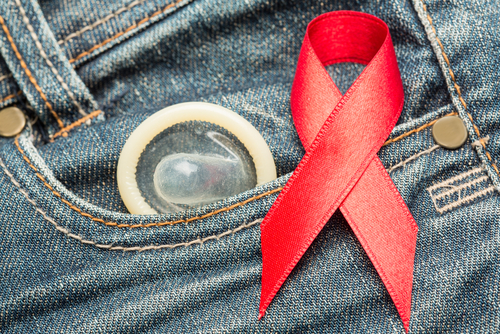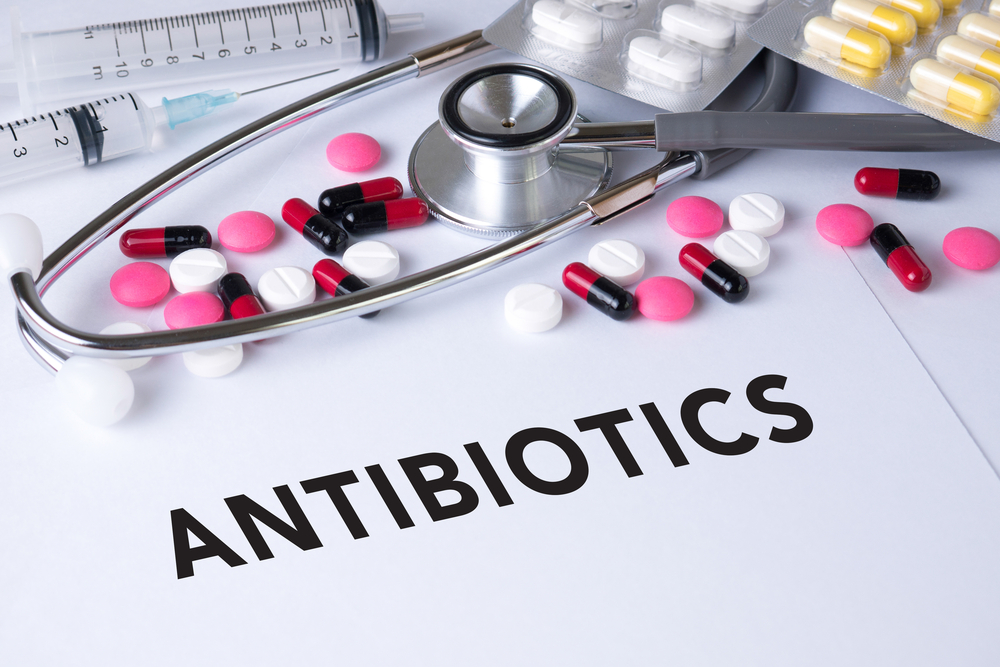 AIDS is short for Acquired Immune Deficiency Syndrome. It is caused by HIV, or Human Immunodeficiency Virus. It destroys the body’s immune system and makes one vulnerable to infections. To break down Acquired Immune Deficiency Syndrome, ‘acquired’ implies that you catch the infection, that is, HIV; ‘immune deficiency’ stands for the breaking down of the body’s immune system and the resulting inability to fight diseases; ‘syndrome’ stands for all the diseases that result due to HIV.
AIDS is short for Acquired Immune Deficiency Syndrome. It is caused by HIV, or Human Immunodeficiency Virus. It destroys the body’s immune system and makes one vulnerable to infections. To break down Acquired Immune Deficiency Syndrome, ‘acquired’ implies that you catch the infection, that is, HIV; ‘immune deficiency’ stands for the breaking down of the body’s immune system and the resulting inability to fight diseases; ‘syndrome’ stands for all the diseases that result due to HIV.
How is AIDS different from HIV?
Having HIV is different from having AIDS. This is because AIDS is the advance stage of HIV. Not all people who are infected with HIV develop AIDS. A lot of HIV-positive people live for long years without getting sick or developing AIDS. HIV breaks down the immune system gradually. When the body’s immunity is damaged, the infected person tends to catch infections that wouldn’t affect a normal person. Such infections are termed as opportunistic infections as they take advantage of a person’s worn out immune system. When an HIV-positive person develops certain types of opportunistic infections or when certain cells of their immune system drop below a specific level, they might develop AIDS.
So if someone is suffering from HIV, they might develop AIDS at a later stage in life. Hence you don’t ‘get’ AIDS but you ‘develop’ it from the Human Immunodeficiency Virus.
How do you get HIV/AIDS?
Human Immunodeficiency Virus is found in blood and body fluids. If infected fluid enters your body through one of the following ways, you get infected with HIV:
– Sexual contact: HIV is found in vaginal fluids, pre-seminal fluid, semen and anal mucous. If you make sexual contact of any sort with a person who has HIV, their infected fluids can enter your body.
– Pregnancy, child birth and breast feeding: Babies are in very close contact with their mother’s body fluids right from amniotic fluid to blood and later, breast milk. Through such contact, an HIV-positive mother can transmit the infection to the child.
– Drug use via injections: Needles and drugs that are infected with HIV can enter your body and contaminate your blood if you share needles for taking drugs or steroids.
– Blood transfusion or organ transplant: If you go for blood transfusion without proper screening and get contaminated blood, you can catch the infection and get HIV.
How do you NOT get HIV/AIDS?
Casual physical contact like shaking hands or sharing utensils with an HIV-positive person does not lead to transmission of HIV or AIDS. This is because body fluids such as saliva, sweat, tears, vomit or urine do not contain enough HIV to contaminate another person. Also, HIV does not thrive in insects or bugs, hence insect bites cannot transmit the virus.
How to prevent transmitting HIV?
If you are HIV positive and want to keep from spreading the infection; or you are a non-infected person looking for tips to prevent from getting HIV, keep the following points in mind:
– Never indulge in unprotected sex—oral, anal or vaginal—with your partner. Always practice safe sex to minimize any chance of exchanging blood or body fluids. Use latex or condoms for protection.
– Never share needles with anyone. If you are using needles, disinfect them before using.
– Never share items like razors, toothbrushes, blades, tattoo needles or any other items that can have blood on them.
What happens if you are HIV positive?
The early stages of HIV infection are termed as acute HIV infection. Some early signs during this stage include headaches, fever, stomach ache, sore joints, nausea, night sweats and skin rashes that can last up to two weeks. People might ignore it thinking it is a viral fever or flu. Most infected people might not show any symptoms at all.
HIV takes a few weeks or months to multiply in your body and wear down your immune system. While this happens, an HIV test will come as negative. However, you can still infect others during this period as the virus is already in your body and the amount of HIV particles in the bloodstream is high enough to infect others. Antibodies are formed when your immune system finally responds to the virus, and it is only then that you test positive for HIV. Even as HIV damaged the body’s immunity, the infected person can live a healthy life for years.
How to get tested for HIV?
If you think you might have HIV, or have been showing any early symptoms and feel that you might have been exposed to the virus recently, talk to your doctor. Most hospitals and clinics offer testing for HIV. Home test kits for HIV are also available. Blood test and oral swabs are sufficient to test for HIV. The test will check you for HIV antibodies and if you are infected with the virus, your test will come back as HIV positive. It normally takes up to 3 months for your body to develop antibodies from the time of infection. This is termed as window period, where you might actually be infected but will return a negative result. Hence, it is important to do a follow-up test later if you still feel at risk for HIV.
Testing for HIV is important as early treatments can not only in prolonging your life span but also prevent the development of AIDS.
What to do if you have HIV/AIDS?
Consult a doctor who knows about HIV and AIDS and get a treatment started. HIV medicines can slow down the progression of the infection and help you live longer. Besides seeking medical treatment, take a counselor’s help for psychological help or join a support group. Inform your sex partner about your infection, as they might also be at risk of HIV. Follow safe sex practices to keep from transmitting the disease to your partner. Eat well, take good rest and avoid recreational drugs.
Related article: Simple ways to Avoid Unwanted Pregnancy
If you are pregnant and have HIV or AIDS, talk to your doctor. With effective treatment, you can significantly lower down the risk of your baby getting infected with HIV. HIV medicines help greatly in preventing transmission. Furthermore, cesarean deliveries and abstaining from breast feeding prevent the infant from developing any infection.



